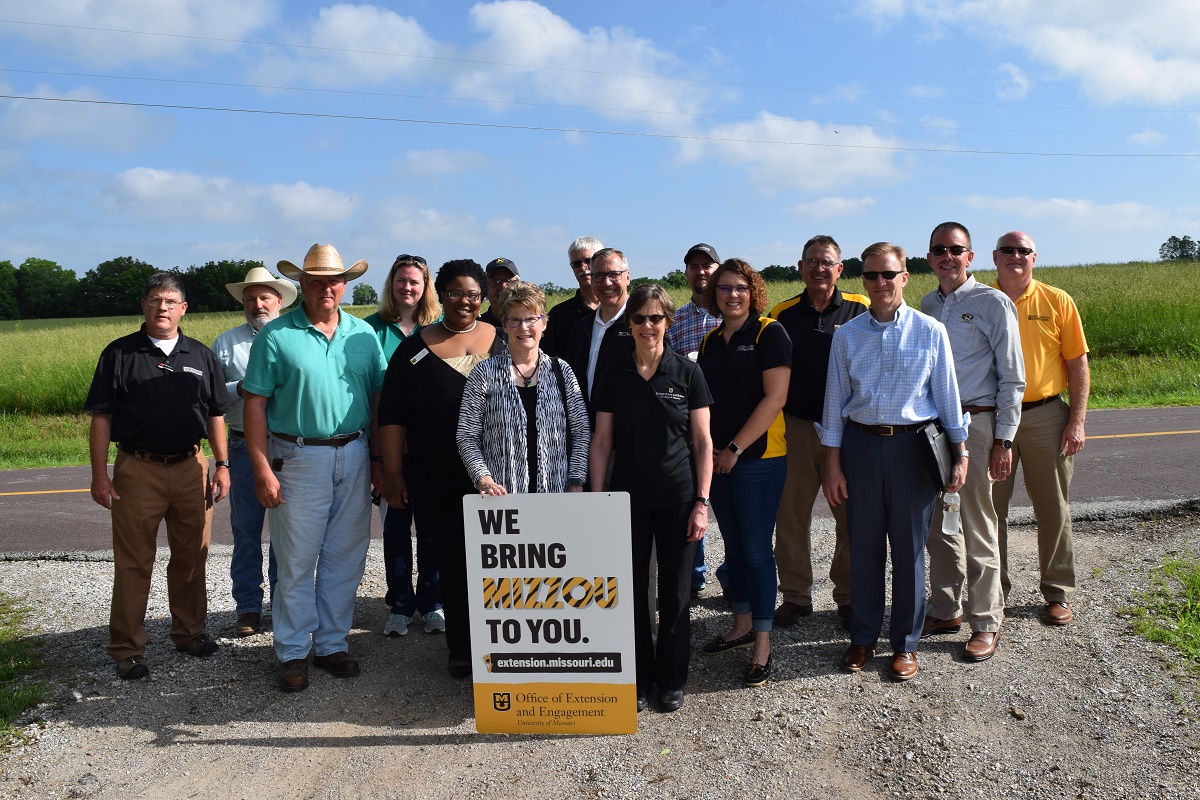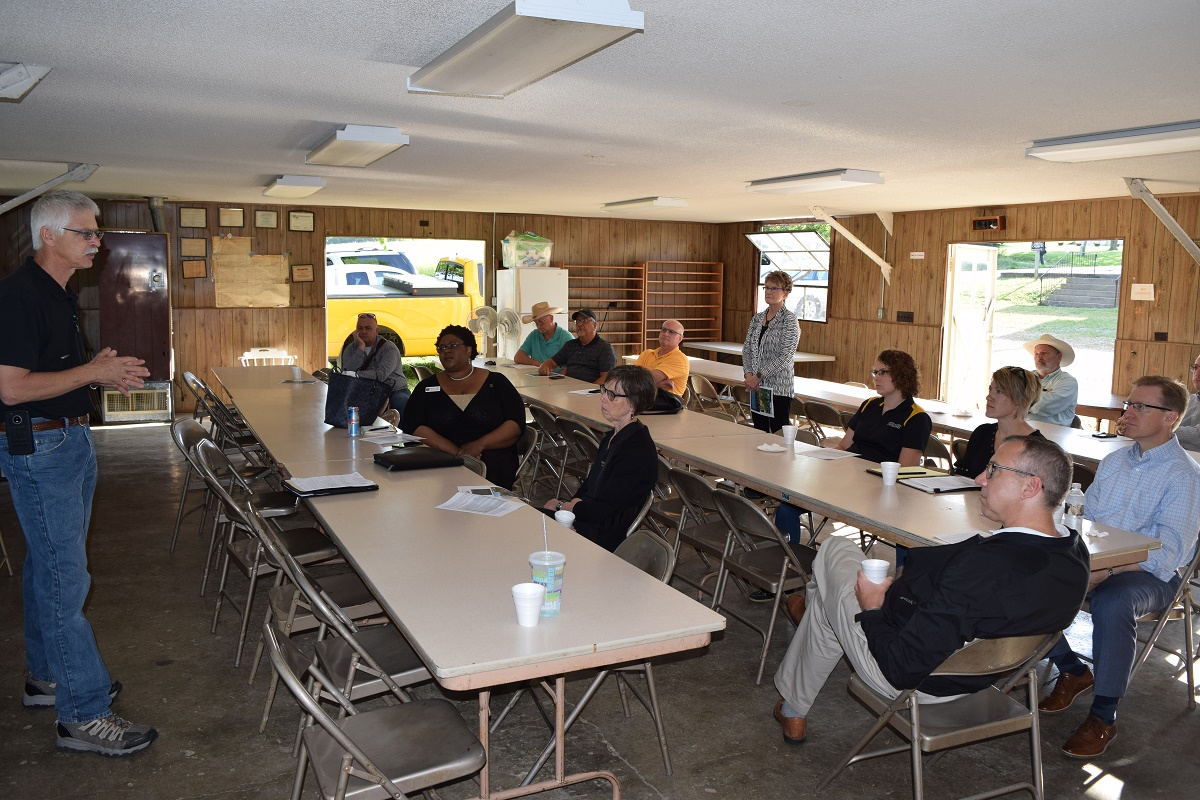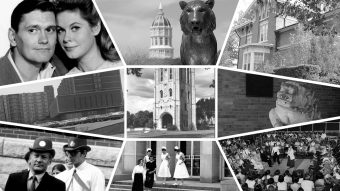May 30, 2019
On a rainy afternoon in late May, a John Deere tractor hugs the side of the Hwy 65 in Hickory County. As it turns a corner, a striped black and gold tail whips in the wind.
While it might seem unusual for a tractor to have a tiger tail in other parts of the country, in Missouri the sight can only mean one thing: the owner of the tractor bleeds black and gold. A caravan of University of Missouri deans traveling from Warsaw to Camdenton noticed right away.
“We know what that means,” laughed Pat Okker, dean of the College of Arts and Science.
“Someone get a picture,” replied Sarah Thompson, dean of the Sinclair School of Nursing.
A blurry picture was snapped as the white van driven by Marshall Stewart, vice chancellor for extension and engagement and UM System chief engagement officer, switched lanes to pass the tractor. No time to stop and talk to the farmer. They had to get to the next stop of their Missouri tour.

The deans were part of an expedition throughout rural central Missouri organized by Stewart and Wayne Prewitt, west central regional director for MU Extension. The trip was an opportunity for the university leaders to visit outstate Missouri and to discuss the university’s work in counties across the state.
Christopher Daubert, vice chancellor and dean of the College of Agriculture, Food and Natural Resources and Kristofer Hagglund, dean of the School of Health Professions, joined Okker and Thompson for the all-day tour that included visits to Clifton City, Clinton, Warsaw and Camdenton. They met with county commissioners, city council members, agency directors, city planners, extension faculty and business leaders to talk about the challenges and opportunities facing rural Missouri and the role MU plays as community partner.
In their conversations they heard firsthand accounts of how research at the university has a real impact on day-to-day lives.

“When our community was dealing with confined feeding animal operations, there was a lot of emotion on both sides of the issue,” said David Booker, county commissioner in Cooper County. “The University of Missouri, through their extension faculty, were able to help us navigate the issue. They provided unbiased, research-based information that was in the best interest of our community.”
Other community leaders echoed Booker’s sentiment. Whether it was economic and workforce development, infrastructure, health care, agriculture, education or housing, MU works with all 114 counties and the city of St. Louis to provide data, expertise and training. The partnership can take many roles, from extension faculty studying ways to improve farming practices to researchers in labs on campus tackling the major challenges facing the state.
“We are the University for Missouri,” Daubert said. “Everything we do as a land grant university is to serve Missourians.”
Chris Thompson, president and chief executive officer for West Central Missouri Community Action Agency and MU alumnus, told the deans about the services they provide to the people in their community. He said that MU’s support of their initiatives was crucial.
“I loved hearing the people’s passion for their communities,” Okker said. “They have so much support for one another and hope for the future. Today was an opportunity to be part of that conversation.”

Other deans agreed that the trip was a way to learn not just about rural issues, but about how the university can best serve the people of Missouri.
Deans Hagglund and Thompson both were particularly interested to get a sense of the health workforce needs facing Missouri and to identify potential collaborations.
Stewart hopes to make trips such as the one in the central region a regular activity for MU leaders.
“Getting off campus and hearing from Missourians is such an important part of what we do,” Stewart said. "Our impact covers the state, from research to tiger tails on tractors."




